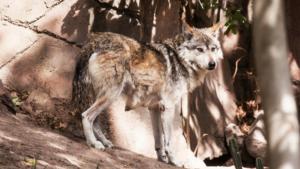
Oct. 7, 1865 when Apostle Orson Hyde, one of the 13 leaders of the Mormon Church, speaking at General Conference in Salt Lake City to the assembled members of the church, had this to say about how the church wanted Mormons to live their lives:
“There is a good deal of ambition among our people to cultivate a great quantity of ground, the result of which is, that we cultivate our lands poorly in comparison to what we would if we were contented with a smaller area, and would confine our labors to it. We have found some difficulty with regard to water, and complaints have been made about a scarcity of water in many places, when, indeed, I suppose the Lord has apportioned the water to the amount of land He intended should be cultivated. I do not think that these things are passed over unnoticed by Him … He understands perfectly well what the elements are capable of producing, and how many of His people may be established here or there with profit and with advantage.”
“… I find the longer we live in these valleys that the range is becoming more and more destitute of grass; the grass is not only eaten up by the great amount of stock that feed upon it, but they tramp it out by the very roots; and where the grass once grew luxuriantly, there is now nothing but the desert weed, and hardly a spear of grass is to be seen.”
“Between here and the mouth of Emigration Canyon, when our brethren, the Pioneers, first landed here in ’47, there was an abundance of grass over all those benches; they were covered with it like a meadow. There is now nothing but the desert weed, the sage, the rabbit-bush, and such like plants, that make very poor feed for stock. Being cut short of our range in the way we have been, and accumulating stock as we are, we have nothing to feed them with in the winter and they perish. There is no profit in this, neither is it pleasing in the sight of God our Heavenly Father that we should continue a course of life like unto this.”
“… Now I speak of these things, my brethren, not because I think that they are the most edifying to you, but I speak of them because I consider that a temporal salvation is as important as a spiritual one.”
“How much more agreeable is life when everything is in order and good regulation is maintained in and around our homes and cities. This is what I have endeavored, in my weak way, to instill into the minds of the Saints. In some instances I have been successful, and where men have adopted the course I have suggested, they have invariably borne testimony in its favor. I would rather have half a dozen cows in the winter, and have them well taken care of, than to have 20 and have 14 of them die for want of feed and proper attention, which would leave me only six. I would rather only have the six to begin with, then I would not have the mortification of seeing so many suffer and die.”
“In the present condition of the ranges, we cannot indulge in the hope of raising such large herds of stock as we have done heretofore; but we have got to keep about what will serve us, and take care of them well; then we can enjoy ourselves, and we are not the authors of misery to any part of creation.”
Cross-posted from :
Watershed Messenger, Summer 2009 – Vol. XVI, No. 2






